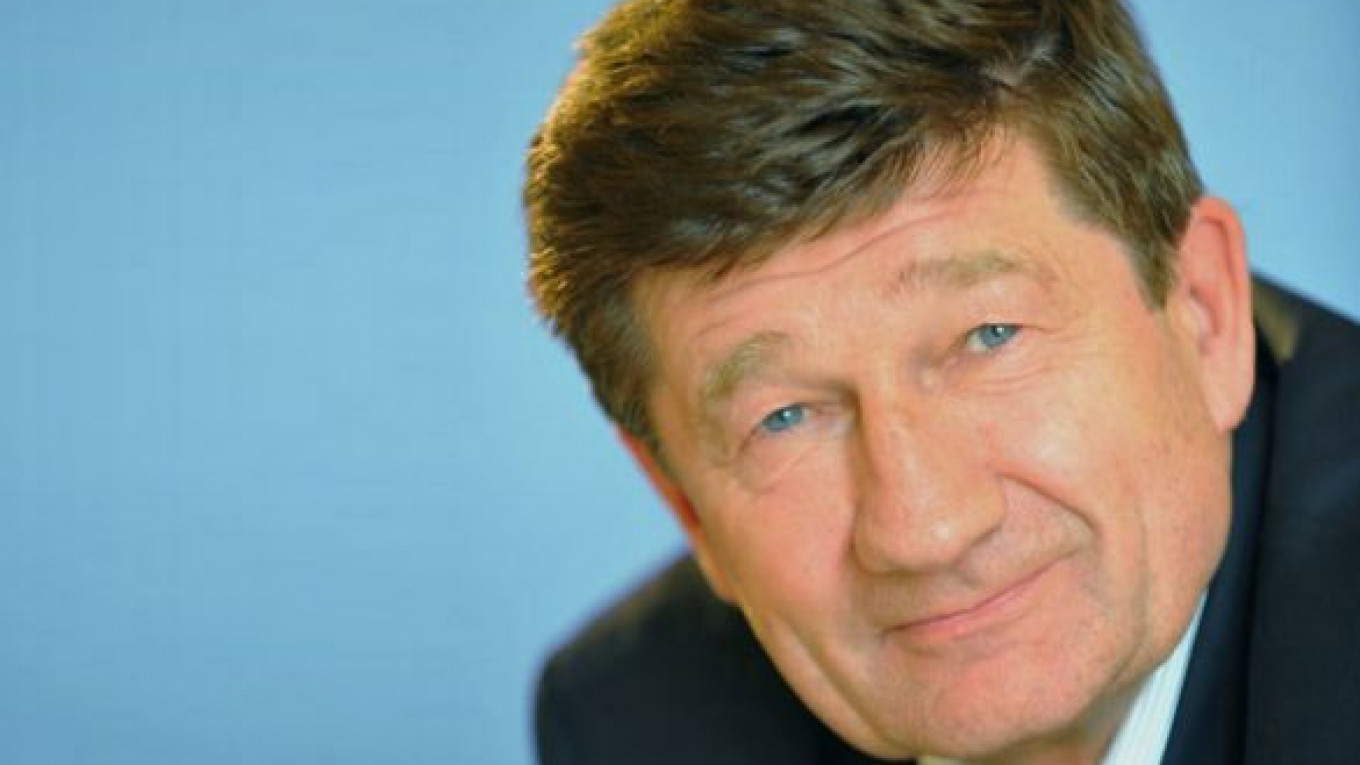United Russia won the Omsk mayoral election, its second such win in as many weeks, upsetting three opposition-party hopefuls, who collectively failed to get 15 percent of the vote.
Vyacheslav Dvorakovsky, 63, who headed the municipal government and had promised to strengthen ties with the regional administration, won 49 percent of Sunday's vote in the Siberian capital.
The runner-up, Communist Party candidate Viktor Zharkov, got 30 percent.
Other challengers did not fare nearly as well. A Just Russia's Irina Averina garnered 6 percent. The Liberal Democratic Party's Yan Zelinsky and Yabloko's Alexander Korotkov, a former deputy governor of the region, received less than 5 percent.
Two independent candidates got a total of 6 percent.
No serious electoral violations were recorded, and independent observers ensured that the vote complied with the law, the independent monitoring group Golos reported Monday.
But the election was marked by an unusually low voter turnout for a city of more than 1 million people.
According to the local election commission, 154,000 people showed up at the polling stations. Only 17 percent of those eligible actually voted, RIA-Novosti reported.
The recent mayoral contest in Krasnoyarsk was a similar story. The United Russia candidate won about 70 percent of the vote in an election marked by an especially low turnout.
The Omsk branch of the Communist Party on Monday confirmed Dvorakovsky's victory, saying the number of falsifications was not enough to influence the vote.
Dvorakovsky had worked for a developer involved in bridge construction before becoming head of the City Council in 2012.
One of his campaign promises was to normalize relations between the city and the regional administration. Such ties had deteriorated under the previous mayor, Viktor Shneider, who resigned earlier this year.
Former Governor Leonid Polezhayev, who led the region for 20 years, also stepped down and was replaced by Viktor Nazarov, a former director of a Gazprom subsidiary.
Experts said that campaigning as a diligent administrator proved a winning tactic for Dvorakovsky, who distanced himself from the rhetoric of the increasingly unpopular United Russia.
The party garnered less than 40 percent of the vote from Omsk in December's State Duma elections.
That figure, less than what the Communist Party got from Omsk, was one of the lowest among the regions.
Mikhail Remizov, president of the National Strategy Institute, said the opposition was unable to "consolidate the protest vote" against Dvorakovsky.
Opposition leaders have said that winning regional elections is the most critical part of their strategy to challenge the Kremlin.
A Message from The Moscow Times:
Dear readers,
We are facing unprecedented challenges. Russia's Prosecutor General's Office has designated The Moscow Times as an "undesirable" organization, criminalizing our work and putting our staff at risk of prosecution. This follows our earlier unjust labeling as a "foreign agent."
These actions are direct attempts to silence independent journalism in Russia. The authorities claim our work "discredits the decisions of the Russian leadership." We see things differently: we strive to provide accurate, unbiased reporting on Russia.
We, the journalists of The Moscow Times, refuse to be silenced. But to continue our work, we need your help.
Your support, no matter how small, makes a world of difference. If you can, please support us monthly starting from just $2. It's quick to set up, and every contribution makes a significant impact.
By supporting The Moscow Times, you're defending open, independent journalism in the face of repression. Thank you for standing with us.
Remind me later.






